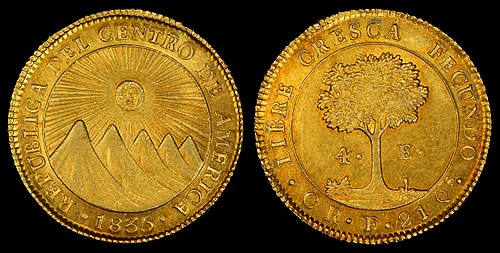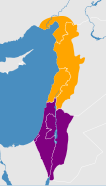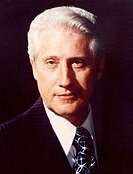From today's featured articleLevantine Arabic is a mutually intelligible group of vernacular Arabic varieties spoken in the Levant, in Syria, Jordan, Lebanon, Palestine, Israel, and Turkey. With more than 44 million speakers, Levantine is, alongside Egyptian, one of the two prestige varieties of spoken Arabic most widely understood in the Arab world. It is the closest vernacular Arabic variety to the official Modern Standard Arabic (MSA), with half of all words being common. Nevertheless, Levantine and MSA are not mutually intelligible. Levantine speakers often call their language al-ʿāmmiyya ('slang' or 'colloquial Arabic') and until recently it was rarely written. However, with the emergence of social media, the amount of written Levantine has significantly increased online where Levantine is written using Arabic, Latin, or Hebrew characters. Levantine pronunciation varies greatly along social, ethnic, and geographical lines. Its grammar and lexicon are overwhelmingly Arabic, with a significant Aramaic influence. (Full article...)
Recently featured:
Did you know ...
|
In the news
On this dayMay 31: World No Tobacco Day; Feast of the Visitation (Catholicism and Anglicanism)
|
Today's featured picture

|
|
The Federal Republic of Central America was a sovereign state in existence from 1823 to 1841 in Central America that consisted of the territories of the former Captaincy General of Guatemala of New Spain. The republic consisted of the present-day countries of Costa Rica, El Salvador, Guatemala, Honduras, and Nicaragua, as well as the southern Mexican state of Chiapas. The republic's currency was the Central American Republic real; this photograph depicts the obverse and reverse of a four-escudo Central American Republic coin, minted in San José in 1835, and now in the National Numismatic Collection at the Smithsonian Institution. Coin design credit: Federal Republic of Central America; photographed by the National Numismatic Collection
Recently featured:
|
Other areas of Wikipedia
- Community portal – The central hub for editors, with resources, links, tasks, and announcements.
- Village pump – Forum for discussions about Wikipedia itself, including policies and technical issues.
- Site news – Sources of news about Wikipedia and the broader Wikimedia movement.
- Teahouse – Ask basic questions about using or editing Wikipedia.
- Help desk – Ask questions about using or editing Wikipedia.
- Reference desk – Ask research questions about encyclopedic topics.
- Content portals – A unique way to navigate the encyclopedia.
Wikipedia's sister projects
Wikipedia is written by volunteer editors and hosted by the Wikimedia Foundation, a non-profit organization that also hosts a range of other volunteer projects:
-
Commons
Free media repository -
MediaWiki
Wiki software development -
Meta-Wiki
Wikimedia project coordination -
Wikibooks
Free textbooks and manuals -
Wikidata
Free knowledge base -
Wikinews
Free-content news -
Wikiquote
Collection of quotations -
Wikisource
Free-content library -
Wikispecies
Directory of species -
Wikiversity
Free learning tools -
Wikivoyage
Free travel guide -
Wiktionary
Dictionary and thesaurus
Wikipedia languages
This Wikipedia is written in English. Many other Wikipedias are available; some of the largest are listed below.
-
1,000,000+ articles
-
250,000+ articles
-
50,000+ articles



